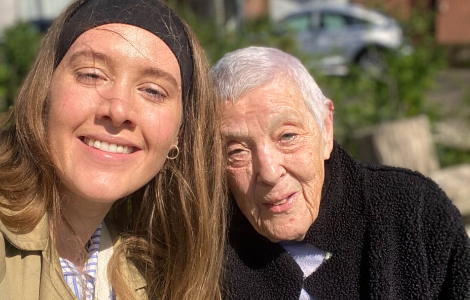Walking reduces risk of breast cancer and relapse

There are dozens of studies showing that 150 minutes of moderate-intensity exercise per week, for example, 2.5 hours of walking per week, has beneficial effects on preventing breast cancer and also on survival of women who went through breast cancer. As you exercise more, the benefit increases even more. You reduce your risk of breast cancer by at least a quarter to as much as 40 percent when you are already past menopause. The same is true for people who are otherwise not so healthy, such as smokers or people who are obese. For them, walking even offers additional benefits, such as weight loss or at least fat loss.
Searches
The basis for most of these studies are detailed surveys that gauge habits of women with and without breast cancer. Together, they strengthen the evidence base because all the polls point in the same direction: more exercise = less cancer. Per hour of activity per week, there is a decrease of about 6 percent. Women who have had breast cancer heal faster when they are active and have fewer relapses. By the way, the beneficial effect of exercise on cancer also applies to other cancers, such as colon cancer. Mind you, you can never reduce your risk of breast cancer to zero if you exercise vigorously.
Statements
Science has several explanations for this phenomenon. For example, active people have lower levels of insulin in the blood. Insulin is the hormone that regulates sugar metabolism. This is an important finding because women with high insulin levels are twice to three times more likely to develop breast cancer. Active women also have lower levels of female hormone estrogen. They don't notice this themselves, but the slightly lower estrogen concentrations also mean a reduced risk of breast cancer. The fact that athletic women produce slightly less estrogen is probably due to their smaller fat mass. Fat cells, like ovaries, produce female hormone. That, by the way, is why being overweight increases the risk of breast cancer.
In women who are or were being treated for breast cancer and who followed 30- to 90-minute exercise sessions three times a week, scientists found less insulin in the blood and lower concentrations of a variety of factors that make cancer cells grow. That may explain why they recover faster and relapse less often.
Finally, exercise has an important impact on immunity: walking strengthens your overall immunity, as long as you do it regularly. That good immunity makes you less likely to get sick, we all know since the corona pandemic. That same strengthened immunity may also make us a little less susceptible to cancer, although science is not quite there yet.
Either way, an active lifestyle, such as regular walking, has countless health benefits. Not only do you have a lower risk of breast cancer, but also a lower risk of cardiovascular disease, stroke, osteoporosis, dementia or depression. In short, any initiatives that make you walk, like The Pink Walk, are invaluable for health. Just do it.
Continue reading

10 questions about deodorant and breast cancer

Team Alfaflex Group raised money while walking for the fight against breast cancer


.png)












.png)
















